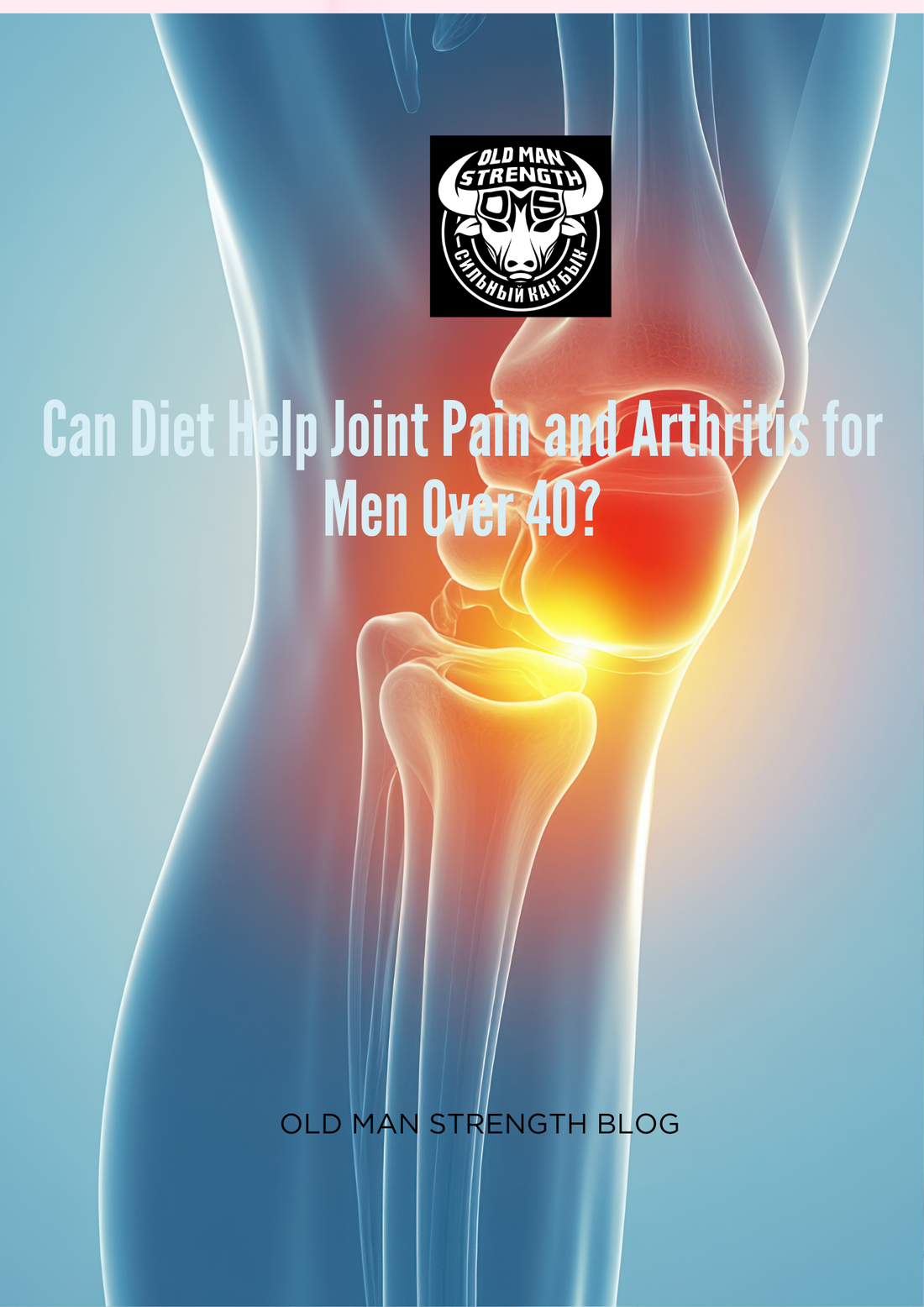
Can Diet Help Joint Pain and Arthritis for Men Over 40?
As men age, they often find themselves grappling with various health issues, with joint pain and arthritis being among the most common. While these conditions were once thought to be inevitable consequences of aging, research suggests that diet plays a crucial role in managing and even alleviating these symptoms. For men over 40, adopting the right dietary approach can make a significant difference in their quality of life. In this blog post, we'll explore how diet can impact joint pain and arthritis and provide actionable tips for improving symptoms through nutrition.
Understanding Joint Pain and Arthritis: Before delving into dietary interventions, it's essential to understand the underlying mechanisms of joint pain and arthritis. Joint pain can result from various factors, including injury, overuse, or inflammation. Arthritis, on the other hand, refers to a group of inflammatory conditions that affect the joints, with osteoarthritis and rheumatoid arthritis being the most prevalent types. Both conditions can cause pain, stiffness, and reduced mobility, significantly impacting daily life.
The Role of Diet: While genetics and age play significant roles in the development of joint pain and arthritis, research suggests that diet can also influence these conditions, sometimes pulling the trigger in a loaded gun. Certain foods and nutrients have been found to either exacerbate inflammation or reduce it, thereby affecting joint health. For men over 40 looking to manage their symptoms, making strategic dietary choices can be a game-changer.
Foods to Include:
- Fatty Fish: Cold-water fish like salmon, mackerel, and sardines are rich in omega-3 fatty acids, which possess anti-inflammatory properties. Incorporating these fish into your diet can help reduce inflammation and alleviate joint pain.
- Fruits and Vegetables: Colourful fruits and vegetables are packed with antioxidants, vitamins, and minerals that support overall health and reduce inflammation. Aim to include a variety of fruits and veggies in your meals to reap their benefits.
- Nuts and Seeds: Walnuts, flaxseeds, and chia seeds are excellent sources of omega-3 fatty acids and other nutrients that promote joint health. Snack on a handful of nuts or sprinkle seeds over salads and yogurt for an added nutritional boost.
- Whole Grains: Opt for whole grains like brown rice, quinoa, and oats instead of refined grains. Whole grains contain fibre and nutrients that can help reduce inflammation and support joint function.
- Herbs and Spices: Turmeric, ginger, and cinnamon are renowned for their anti-inflammatory properties. Incorporating these herbs and spices into your cooking can add flavour while providing potential pain-relieving benefits.
Foods to Limit:
- Processed Foods: Processed foods high in refined sugars, unhealthy fats, and additives can promote inflammation and worsen joint pain. Limit your intake of processed snacks, sugary beverages, and fast food.
- Dairy Products: Some individuals with arthritis may find that dairy products exacerbate their symptoms. Experiment with dairy-free alternatives like additive free almond milk, coconut yogurt, or cashew cheese to see if your symptoms improve.
- Alcohol: Alcohol consumption can contribute to inflammation and may exacerbate joint pain. Limit your intake of alcoholic beverages, especially if you notice a correlation between drinking and increased discomfort.
- Refined Carbohydrates: Foods high in refined carbohydrates, such as white bread, pastries, and sugary cereals, can spike blood sugar levels and promote inflammation. Choose whole grain alternatives for better joint health.
Incorporating Dietary Changes: Making significant dietary changes can feel daunting, but it's essential to approach it gradually and sustainably. Start by incorporating small changes into your daily routine, such as adding an extra serving of vegetables to your meals or swapping out unhealthy snacks for healthier alternatives. Keep track of how your body responds to these changes and adjust your diet accordingly.
Consulting with a Healthcare Professional: While dietary changes can play a crucial role in managing joint pain and arthritis, it's essential to consult with a healthcare professional before making significant changes to your diet, especially if you have underlying health conditions or are taking medications. A healthcare provider or registered dietitian can provide personalised guidance and recommendations tailored to your individual needs.
For men over 40 experiencing joint pain and arthritis, adopting a nutrient-rich diet can offer significant relief and improve overall joint health. By including anti-inflammatory foods and limiting pro-inflammatory ones, you can take proactive steps towards managing your symptoms and maintaining an active lifestyle. Remember that consistency and moderation are key, and don't hesitate to seek professional guidance to optimise your dietary approach. With the right diet and lifestyle choices, you can take control of your joint health and enjoy a more comfortable and fulfilling life.
Stay Strong


